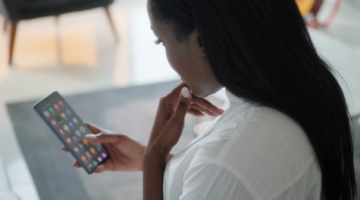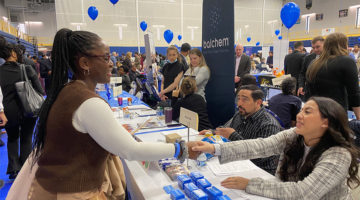 MIAMI – Like the fiery speeches he made as a Freedom Rider leading demonstrations to desegregate schools and restaurants in the South, U.S. Rep. John Lewis, D-Ga., delivered a passionate plea to students at a historic high school urging them to get behind a new civil rights movement in the classroom, where black males continue to lag academically behind their white peers in the nation’s fourth largest school system.
MIAMI – Like the fiery speeches he made as a Freedom Rider leading demonstrations to desegregate schools and restaurants in the South, U.S. Rep. John Lewis, D-Ga., delivered a passionate plea to students at a historic high school urging them to get behind a new civil rights movement in the classroom, where black males continue to lag academically behind their white peers in the nation’s fourth largest school system.
Lewis joined Congresswoman Frederica Wilson of South Florida’s 24th Congressional District at Booker T. Washington High in the Overtown neighborhood where the two Democrats gave harrowing personal testimonies from the racial turmoil of the 1960s to spark energy and inspiration in about 50 students and professionals in Wilson’s 5000 Role Models of Excellence Project.
Lewis, who was made an honorary member of the Role Models project, was in town to participate in the Miami Book Fair International.
Organizers said his visit to the high school was part of the Role Model Projects’ “new civil rights movement” that seeks to improve the quality of education and academic performance among black males in schools, especially those in the inner-city.
At Booker T. Washington High, the second oldest predominantly black school in Miami, the venue symbolized the struggle. It was converted to a middle school in 1967, much to the outrage of students, parents and alumni.
Lewis told the students to look to the past as a motivation to rise above circumstances such as poverty to become productive citizens. Recent political achievements have motivated black males to achieve, he said.
“I think President Obama has put us miles and miles ahead. If this country can have a black president, anything is possible,” Lewis said.
“We call this the new civil rights movement,” added Wilson. “So many people went through so much so that you can come to school.”
For 50 years, Lewis has earned a reputation as civil rights powerhouse, leading numerous demonstrations, including the famous march in 1965 in Selma, Ala., on what came to be called “Bloody Sunday” because of the violence unleashed by police against the peaceful marchers. Lewis’ skull was fractured after state troopers attacked some 600 blacks on the landmark Edmund Pettus Bridge. Undaunted, he resumed leading demonstrations months after his injuries healed.
In Miami, Lewis recalled this and other harshly racist periods of America, including the infamous bombing of the Sixteen Street Baptist Church in Alabama in 1963 that killed four black girls.
“Today, we’re better off,” said Lewis. “We have more opportunities now than we had then. But we have to pursue them more.” Wilson, a former elementary school principal and Miami-Dade School Board member, told the students, “You can’t take school for granted.” “People have died and have been thrown in jail, even beaten, so you can be here to have the opportunity to go to college,” she said. “Don’t throw it all away. Let this be your own civil rights movement. You have the responsibility to give back”
Lewis speech moved some students. “It’s amazing, some of the things he had gone through during desegregation,” said Terry Jefferson, a junior at Booker T. Washington High.












No Comment